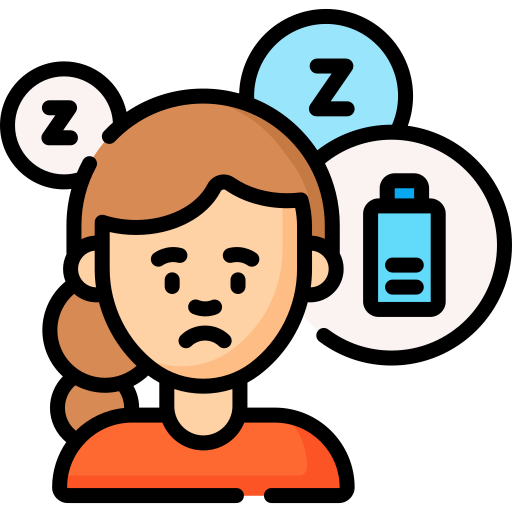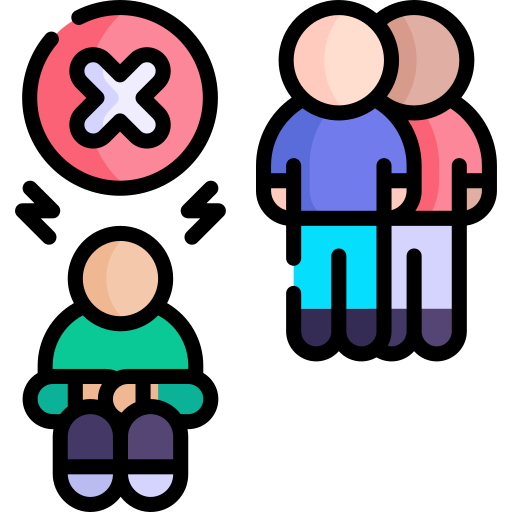
This logo isn't an ad or affiliate link. It's an organization that shares in our mission, and empowered the authors to share their insights in Byte form.
Rumie vets Bytes for compliance with our
Standards.
The organization is responsible for the completeness and reliability of the content.
Learn more
about how Rumie works with partners.
Depression can feel like an endless tunnel of darkness, leaving you isolated and struggling to find your way out.
 Photo by Sasha Freemind on Unsplash
Photo by Sasha Freemind on UnsplashBut you don't have to navigate this journey alone. Reaching out to someone when you're experiencing depression can be a lifeline, offering support, understanding, and a glimmer of hope.
 Photo by Lina Trochez on Unsplash
Photo by Lina Trochez on UnsplashLearn how you can reach out to a friend, family member, or professional about your feelings of depression and take the first step toward getting better.
Step 1: Recognize the Need
 Photo by Gadiel Lazcano on Unsplash
Photo by Gadiel Lazcano on UnsplashAcknowledging that you're dealing with depression is a significant first step. When you notice persistent feelings of sadness, hopelessness, or a lack of interest in activities you once enjoyed, it's a sign that it's time to seek help.

Loss of interest or pleasure in activities you used to enjoy

Change in sleep patterns (e.g., trouble falling/staying asleep or excessive sleep)

Increase or decrease in appetite/weight

Fatigue and lack of energy

Difficulty concentrating

Feelings of guilt or worthlessness

Physical symptoms (e.g., headaches, stomach problems, pain)

Suicidal thoughts
Step 2: Choose the Right Person
 Photo by LinkedIn Sales Solutions on Unsplash
Photo by LinkedIn Sales Solutions on UnsplashSelecting the right person to reach out to is crucial. Opt for someone who is compassionate, understanding, and who you feel comfortable talking to about your feelings.
Make a list of people you could reach out to for support. The list could include a:
close friend
family member
partner
mental health professional
Step 3: Choose the Right Time and Place
Step 4: Open the Conversation
Starting the conversation can be daunting, but remember that your feelings are valid.
 Photo by Priscilla Du Preez on Unsplash
Photo by Priscilla Du Preez on UnsplashBegin with a gentle approach, such as saying, "I've been struggling with my emotions lately, and I think I might be dealing with depression." This sets the tone for an open and honest discussion.
Step 5: Share Your Feelings
Describe your experiences and feelings honestly. Share specific symptoms you've noticed, like changes in sleep patterns, appetite, or energy levels.
Even if you're not able to express why you are feeling this way, it is OK to simply let them know that you're not OK.
 Photo by Katarzyna Pypla on Unsplash
Photo by Katarzyna Pypla on UnsplashFor example, you might say:
"I've been feeling really down and overwhelmed lately. I don't think I'm OK."
"I have trouble getting out of bed in the morning and I find it hard to motivate myself to do even simple tasks, like brushing my teeth or having a shower."
"I have recurring thoughts about hurting myself."
Step 6: Ask for Support
 Photo by Rosie Sun on Unsplash
Photo by Rosie Sun on UnsplashLet the person know how they can help you. You may want to express that you're not asking them to "solve the problem," but seeking a space to share.
Tell them how they can best support you, be it:
lending an empathetic ear
helping you to seek professional help
accompanying you to appointments
offering practical assistance (e.g., buying groceries, cooking meals, regularly checking in, etc.)
Step 7: Educate Them

Not everyone knows about depression, and that's okay. You can help them understand by sharing some resources. Send them an article or video that explains what depression is and how it feels. This can open up their eyes to your experience.
Some resources you could share include:
The Byte, "How do I support someone who reaches out about their depression?"
The video below, called, "What is Depression?"
Quiz
For the past few months, a high school student named Louis has been experiencing depression and wants to reach out to someone for support. What steps should he take to do this?
Making the decision to tell someone about your depression is a crucial step toward recovery, and the right person will be appreciative that you shared your feelings with them. When opening up to your chosen person, it's important that you do so clearly and at a time and place that ensures you will not be interrupted (i.e., not during a short break between classes).
Take Action
Reaching out for help when you're facing depression is a brave and important step. Remember, you're not a burden for opening up about your feelings. The right people will want to support you through the tough times.
 Photo by Transly Translation Agency on Unsplash
Photo by Transly Translation Agency on UnsplashCheck out the list below for more actions you can take to start your journey to better mental health.
This Byte has been authored by
Sean Ogle
Instructional Designer & Educator | Squad Lead
M.T.


